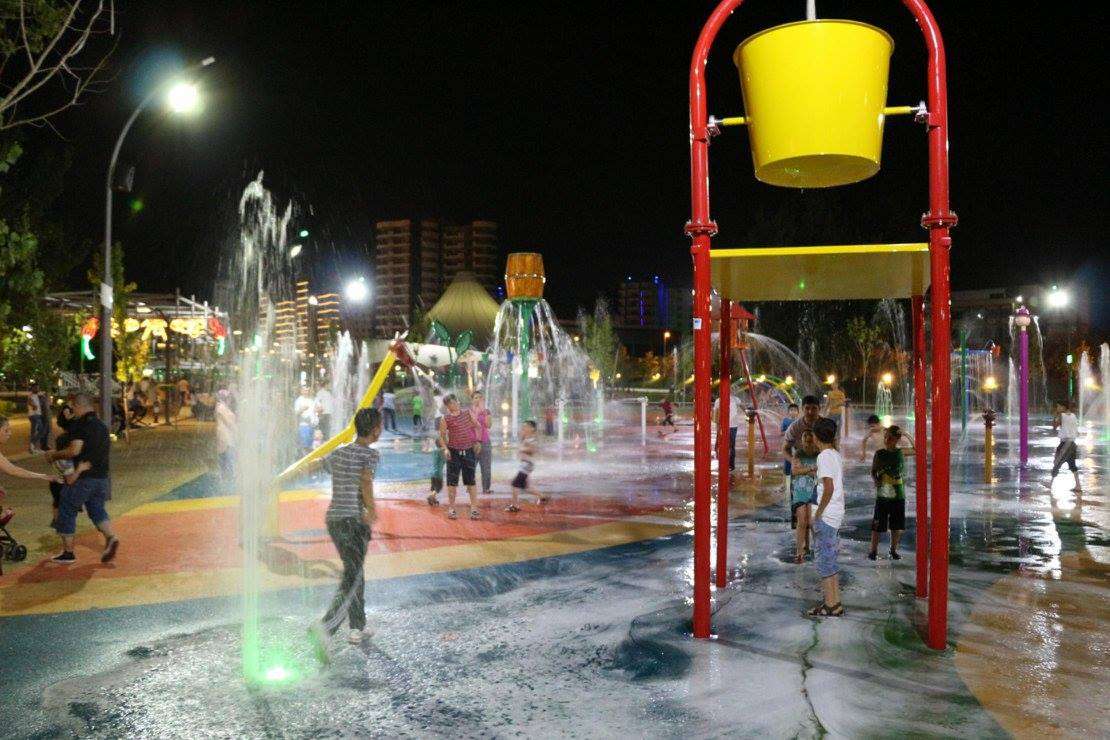
Splash Park Planning A to Z
Water Splash Blog Read more, Discover more ! Splash Park Planning A to Z Before you decide to add a splash park to your community,
Why Glass is the Superior Choice for Filter Media in Splash Pads
If you’ve ever spent a scorching summer day at a splash pad with your kids, you know the importance of clean and safe water. One key component in keeping these aquatic play areas pristine is the filter media used to trap debris and contaminants. While there are various options available, one stands out as superior: glass. In this blog post, we’ll explore why glass is the top choice for filter media in splash pads, offering unparalleled performance and benefits that will have both parents and park managers alike jumping for joy.
Introduction to Splash Pads and their Importance in Public Spaces
Splash pads, also known as spray parks or splash parks, have become increasingly popular in public spaces such as parks, playgrounds, and community centers. These interactive water play areas provide a fun and refreshing experience for people of all ages. Unlike traditional pools, splash pads do not have standing water, making them a safer option for children to play in. The concept of splash pads originated from the “sprayground” at the Canadian National Exhibition in Toronto in 1970. Since then, they have evolved into more elaborate designs with various features such as sprays, fountains, and dumping buckets. The main purpose of a splash pad is to provide
entertainment and relief from hot summer days, but there are also many other benefits that make them an important addition to public spaces. Firstly, splash pads promote physical activity by encouraging children to run around and explore the different elements of the water feature. This helps improve their motor skills and coordination while keeping them active and engaged. Additionally, many splash pads are designed with inclusive features that cater to children with disabilities or limited mobility. This allows for equal participation among all members of the community.
Moreover, incorporating splash pads into public spaces has been shown to increase social interaction amongst individuals of all ages. Children can interact with each other while playing in the same space without any barriers or restrictions like traditional swimming pools may have. Furthermore, parents and caregivers also have the opportunity to bond with their children as they join in on the fun
activities together. Aside from its recreational purposes, splash pads also offer environmental benefits. They use significantly less water than traditional pools because they recycle and filter the same water repeatedly through a closed-loop system. This makes them a more sustainable choice for communities looking to conserve resources. In recent years, there has been a growing concern about harmful chemicals used in pool filtration systems such as chlorine that can cause health issues for swimmers if not properly managed or
maintained. This is where glass media comes in as a superior filter option for splash pads. Glass is an eco-friendly and non-toxic alternative to traditional pool filter media, making it safer for both the environment and individuals using the splash pad. Splash pads have become an important feature in public spaces due to their numerous benefits. From promoting physical activity and social interaction to being environmentally friendly, they provide a fun and safe way for communities to come together and beat the heat. By choosing glass as the filter media for these water play areas, we can further enhance their advantages while also prioritizing the health and well-being of those who enjoy them. What is Filter Media and its Role in Splash Pads? Filter media refers to the material used in filtration systems to remove impurities and contaminants from water. In the context of splash pads, filter media plays a crucial role in maintaining clean and
safe water for children to play in.
Splash pads are becoming increasingly popular as a fun and interactive alternative to traditionalswimming pools. These water play areas feature various elements such as fountains, sprayers, and jets that create a playful environment for children. However, with frequent use by numerous people, splash pad water can quickly become dirty and contaminated. This is where filter media comes into play. The primary function of filter media in splash pads is to remove debris, bacteria, algae, and other contaminants from the water through physical or chemical processes. Without proper filtration, these impurities can accumulate and pose health hazards for children using the splash pad.
There are several types of filter media available on the market, including sand, diatomaceous earth (DE), cartridge filters, and glass. While each type has its advantages and disadvantages, glass stands out as the superior choice for use in splash pad filtration systems.
Glass filter media offers numerous benefits that make it well-suited for use in splash pads. Firstly, it has an exceptional ability to trap even the smallest particles from the water due to its irregular shape and size distribution compared to traditional sand or DE filters. This means cleaner water for longer periods without needing frequent backwashing or replacement of filter cartridges.
Moreover, glass is a non-porous material that does not support bacterial growth like sand or DE filters often do. This makes it a more hygienic option for maintaining clean water in splash pads where young children are playing. Another advantage of using glass as filter media is its longevity. Unlike sand or DE filters that need regular replacement due to wearing down over time, glass retains its effectiveness over many years without needing frequent replacements. In addition to its superior filtration capabilities, glass filter media also offers environmental benefits. It is made from recycled glass, making it a sustainable choice for water filtration. Furthermore, it can be
easily recycled again at the end of its lifespan. Filter media plays a vital role in maintaining clean and safe water in splash pads. Choosing the right type of filter media is crucial for ensuring optimum performance and longevity of the filtration system. With its exceptional filtering abilities, non-porous and sustainable properties, glass stands out as the superior choice for use in splash pad filters.
The Traditional Choice: Sand as Filter Media
When it comes to choosing the right filter media for a splash pad, there are many options available on the market. One traditional and commonly used choice is sand. For decades, sand has been the go-to filter media for water filtration systems due to its low cost and availability. However, with advancements in technology and increasing concerns about safety and maintenance, sand may not be
the best choice for modern splash pads. Sand as a filter media works by trapping debris and impurities as water passes through it. The
particles of sand form small spaces between them which allow water to flow while capturing larger particles. This process is known as mechanical filtration and is effective in removing visible debris from the water. One of the main advantages of using sand as a filter media is its affordability. Sand is easily accessible and relatively inexpensive compared to other options such as glass or zeolite. It also requires minimal maintenance, making it a popular choice for large commercial pools or splash pads with high traffic. However, there are several drawbacks to using sand as a filter media that should be taken into consideration before making a decision. Firstly, sand filters have limited efficiency when it comes to removing smaller particles such as bacteria or algae from the water. This can lead to poor water
quality and potential health hazards for users.
Moreover, sand filters require frequent backwashing (the process of reversing the flow of water through the filter) to remove trapped debris and maintain proper functioning. This not only wastes large amounts of water but also adds extra strain on pool equipment and increases energy costs. Another issue with using sand in splash pads is its tendency to clog over time due to accumulation of debris in between the grains. As a result, more frequent replacements are necessary which can add up in terms of long-term costs. In contrast, glass as a filter media offers superior performance and numerous benefits over traditional options like sand. Glass beads have an irregular shape that creates tiny spaces between them, allowing for more efficient filtration of both large and small particles. Additionally, glass has a higher
surface area which means it can trap more debris without clogging and requires less frequent backwashing.
While sand may be the traditional choice for filter media in splash pads, it may not be the most effective or cost-efficient option in the long run. Considering the potential drawbacks and benefits of alternatives such as glass, it is clear that choosing the right filter media is crucial for ensuring a safe and enjoyable splash pad experience for all users.
The Rise of Glass as a Superior Alternative
The use of glass as a filter media in splash pads has been steadily gaining popularity in recent years. This is due to its numerous advantages over traditional filter media such as sand and gravel. Glass offers superior filtration capabilities, durability, and sustainability, making it the ideal choice for splash pad installations. One of the main reasons for the rise of glass as a superior alternative is its exceptional filtration efficiency. Unlike other filter media that can become clogged and lose their effectiveness over time, glass retains its shape and size even after prolonged use. This allows for consistent filtration performance, ensuring that the water in splash pads remains clean and safe for users. Additionally, glass has a larger surface area compared to traditional filter media. This means that more contaminants can be captured during the filtration process, resulting in cleaner water with fewer impurities. The smooth surface of glass also prevents bacteria from clinging onto it, further improving its ability to purify water.
Durability is another key factor contributing to the popularity of glass as a filter media in splash pads. Sand and gravel are prone to breaking down over time due to constant exposure to water and foot traffic. On the other hand, glass is made from recycled materials that have gone through a rigorous manufacturing process, making it incredibly strong and long-lasting. It can withstand heavy usage without losing its shape or effectiveness, making it a cost-effective option for splash pad owners. Moreover, using glass as a filter media promotes sustainability by reducing waste and conserving natural resources. As mentioned earlier, glass used for this purpose is made from recycled materials such as crushed bottles or jars. By using recycled materials instead of mining new ones like sand or gravel, we reduce our carbon footprint on the environment.
Furthermore, unlike traditional filter media which needs frequent replacement when they wear out or break down, glass only needs occasional backwashing to maintain its efficiency. This not only saves time but also reduces maintenance costs associated with replacing worn-out filters. The rise of glass as a superior alternative for filter media in splash pads can be attributed to its
exceptional filtration efficiency, durability, and sustainability. Its ability to consistently deliver clean and safe water, along with its environmentally-friendly properties and cost-effectiveness, makes it the perfect choice for any splash pad installation.
Benefits of Using Glass as Filter Media in Splash Pads
When it comes to choosing the right filter media for your splash pad, glass may not be the first material that comes to mind. However, using glass as a filter media in splash pads offers numerous benefits that make it a superior choice compared to other options.
1. Superior Filtration Efficiency
Glass filter media has proven to be more efficient at removing fine particles and debris from water than traditional sand filters. This is because glass has a smaller pore size and greater surface area compared to sand, resulting in better filtration performance. The smaller pores also prevent clogging, allowing for longer periods of continuous use without maintenance.
2. Enhanced Water Clarity
The use of glass as a filter media can significantly improve the overall clarity of the water in your splash pad. As mentioned earlier, glass has a larger surface area which means more effective trapping of particles and impurities from the water. This results in cleaner and clearer water that is free from visible debris and contaminants.
3. Eco-Friendly Option
Unlike traditional sand filters which need frequent replacement due to wear and tear, glass filter media is made from recycled materials making it an environmentally friendly option. Not only does this reduce waste, but it also reduces the overall carbon footprint associated with manufacturing new filter media.
4. Reduced Maintenance Costs
Due to its superior filtration efficiency and durability, using glass as a filter media can result in significant cost savings in terms of maintenance expenses. With less frequent replacements needed, you will save money on purchasing new filter media as well as reducing labor costs associated with maintenance.
5. Longevity
As previously mentioned, glass is extremely durable compared to other materials used for filter media such as sand or anthracite coal. Glass beads are resistant to breaking down over time even when exposed to harsh chemicals or extreme temperatures commonly found in outdoor water systems like splash pads.
6 .Safe for Splash Park Users
One major advantage of using glass as a filter media is that it is safe for swimmers. Glass beads used in filter media are round and smooth, eliminating any risk of cuts or abrasions to swimmers. This makes glass a safe choice for use in splash pads where children will be playing.
The benefits of using glass as filter media in splash pads are undeniable. From superior filtration efficiency to eco-friendliness and safety, glass offers a multitude of advantages over traditional options such as sand filters. So, if you’re looking to upgrade your splash pad’s filtration system, consider making the switch to glass filter media for a cleaner and more enjoyable water experience.
– Environmental Sustainability
Environmental sustainability is a crucial aspect to consider when designing and constructing splash pads. As public areas that are continuously exposed to water, it is important to choose filter media that not only provides optimal filtration but also minimizes its impact on the environment.
Glass, as the superior choice for filter media in splash pads, offers numerous environmental benefits. Firstly, glass is a naturally occurring material and does not require any additional chemicals or additives during its production process. This means that its use as a filter media does not contribute to any harmful emissions or pollution. Moreover, glass is an inert substance which means it will not react with water or other materials in the splash pad. This eliminates the risk of leaching harmful substances into the water and ensures
that the quality of water remains safe for public use. In addition, using recycled glass as filter media promotes sustainable waste management practices. Instead of ending up in landfills, post-consumer glass can be crushed and reused as filter media for
splash pads. This reduces the amount of waste sent to landfills and conserves natural resources by reducing the need for new raw materials.
Furthermore, glass has a longer lifespan compared to other filter media such as sand or gravel. This means less frequent replacement and therefore less waste generated over time. Additionally, due to its durability, there is minimal risk of breakage or damage during installation or use which further reduces waste.
Another important factor in environmental sustainability is energy consumption. Glass has been proven to have low energy requirements for crushing and processing compared to other traditional filter media options like sand or gravel. Its smooth surface also allows for better flow dynamics which results in lower energy consumption during filtration. Furthermore, choosing glass as a filter media supports local economies by creating demand for recycled materials within communities. It also reduces transportation costs since recycled glass can be obtained from nearby sources rather than being shipped from distant locations. Using glass as a filter media in splash pads aligns with the principles of environmental sustainability. Its natural composition, durability, and low energy requirements make it a responsible and eco- friendly choice for public water play areas. By choosing glass, we can ensure that our splash pads not only provide safe and clean water, but also contribute to a healthier and more sustainable environment for future generations.
– Improved Water Quality
Improved water quality is a critical factor to consider when designing and maintaining a splash pad. After all, the purpose of these recreational areas is for people to have fun and cool off in the water, not to get sick from harmful bacteria or algae. This is where choosing the right filter media for your splash pad becomes crucial, and why glass stands out as the superior choice. One of the main reasons why glass is ideal for improving water quality in splash pads is its unique physical properties. Unlike other materials such as sand or gravel, glass has a smooth surface with no rough edges or pores. This means that there are fewer spaces for bacteria and other contaminants to cling onto, making it easier for them to be filtered out by the system. Moreover, glass has an incredibly high surface area compared to other filter media options. This means that it can capture more debris and particles while allowing water to pass through efficiently.
As a result, you will notice cleaner and clearer water in your splash pad with reduced levels of contaminants. In addition to its physical properties, using glass as filter media also brings environmental benefits that contribute to improved water quality. Glass is an inert material that does not leach any harmful chemicals into the water like some plastic-based materials do. It also does not break down over time, ensuring that your filtration system remains effective for years without needing frequent replacement .
Another significant advantage of using glass in splash pads is its versatility in handling different types of contaminants. Whether it’s fine particles like dirt or larger debris like leaves and twigs, glass can effectively trap them all without clogging up the filtration system. This leads to increased efficiency and better overall performance of your splash pad’s filtration process. Aside from its effectiveness in filtering out impurities from the water itself, glass also plays a role in maintaining proper sanitation levels within the entire system. Its smooth surface prevents biofilm formation, which can harbor harmful bacteria if left unchecked. With glass as the filter media, you can ensure that your splash pad remains a safe and hygienic environment for everyone to enjoy. Choosing glass as the filter media for your splash pad is an excellent decision when it comes to ensuring improved water quality. Its physical properties, environmental benefits, versatility in
handling contaminants, and ability to maintain sanitation levels make it the superior choice for maintaining a clean and healthy recreational space.
– Enhanced Aesthetic Appeal
Glass, especially recycled glass, is becoming a popular choice for filter media in splash pads due to its enhanced aesthetic appeal. In this section, we will discuss the various ways in which glass can enhance the overall look and feel of a splash pad.
First and foremost, glass adds a unique sparkle and shine to the water in splash pads. This is because glass particles are smooth and reflective, creating a glittery effect when mixed with water. It’s almost like having millions of tiny diamonds shimmering in the sunlight. This not only looks visually appealing but also adds an element of fun for children as they play in the water.
Furthermore, glass comes in a variety of colors which can be used to create vibrant and eye-catching designs on the floor or walls of a splash pad. The use of colored glass particles can add an artistic touch to the overall design, making it stand out from other traditional filter media options like sand or gravel.
In addition to adding color and shine, glass also has a translucent quality that allows light to pass through it. This feature can be utilized by incorporating underwater lighting in the splash pad’s design. When combined with colored glass particles, this creates mesmerizing light effects that can change depending on the time of day or angle at which it is viewed. Another advantage of using glass as filter media is its versatility. Glass particles come in different sizes ranging from fine sand-like grains to larger pebbles. This means that they can be used not only for filtration purposes but also for decorative purposes such as creating pathways or borders around play areas within the splash pad.
Moreover, unlike other materials commonly used for filtration such as sand or gravel, recycled glass does not wear down over time. This means that its aesthetic appeal remains intact even after prolonged use.
Using recycled glass as filter media also has an added environmental benefit by diverting waste from landfills and promoting sustainability. Knowing that their children are playing on a surface made of recycled materials can also be a source of pride for parents and community members. The enhanced aesthetic appeal that glass provides makes it a superior choice for filter media in splash pads. Its ability to add sparkle, color, light effects, versatility, and sustainability all contribute to creating an enjoyable and visually appealing water play experience for all ages.
– Reduced Maintenance Costs
Splash pads are a popular and fun addition to any outdoor space, providing a safe and interactive water play experience for children. When it comes to choosing the right filter media for these water features, glass stands out as the superior choice. Not only does it offer unmatched filtration capabilities, but it also boasts numerous cost-saving benefits, particularly in terms of reduced
maintenance costs. One of the main advantages of using glass as filter media in splash pads is its longevity. Unlike other materials such as sand or pea gravel, which can break down over time and require frequent replacement, glass is extremely durable and can last up to 10 times longer. This means that splash pad owners will save significantly on maintenance costs by not needing to constantly replenish their
filter media.
Furthermore, glass has a smooth surface that prevents debris from sticking to it, unlike rougher materials like sand or zeolite. This leads to less clogging in the filtration system and ultimately reduces the need for regular backwashing or cleaning. With less frequent maintenance required, there will be significant savings on labor costs for splash pad owners. In addition to being low-maintenance, glass also offers superior filtration capabilities compared to other traditional filter media options. It has a smaller particle size distribution which allows for better removal of fine particles and impurities from the water. This results in cleaner and clearer water with
fewer contaminants left behind. Another benefit of using glass as filter media is its natural ability to resist algae growth. Algae thrive in
wet environments with organic matter present, making sand filters more prone to algae growth due to their porous nature. Glass,on the other hand,is non-porous,making it an unattractive environment for algae growth.This translates into lower chemical usage,cost savings,and overall better water quality.
Additionally,glass offers excellent mechanical strength,supreme chemical stability,and is resistantto degradation from sunlight exposure.This means that splash pad owners won’t have to worry about replacing their filter media prematurely,which again translates into cost savings.
In conclusion,glass is the superior choice for filter media in splash pads due to its durability,longevity,low-maintenance requirements,superior filtration capabilities,and resistance to algae growth. By choosing glass as the primary filter media for a splash pad, owners can expect significant cost savings in terms of reduced maintenance and replacement costs,making it a smart
investment for any outdoor water play area.
– Increased Lifespan
Glass filter media is quickly becoming the preferred choice for splash pads due to its numerous benefits, one of which being an increased lifespan. In this section, we will delve into the reasons why glass is able to outlast other filter media options and how it contributes to a longer-lasting and more efficient splash pad.
Firstly, glass is a highly durable material that can withstand harsh environmental conditions without deteriorating. Unlike traditional sand or gravel filters which may break down over time, glass maintains its shape and size, ensuring consistent filtration performance year after year. This durability also means less frequent replacement or maintenance compared to other filter media options. Another factor contributing to the increased lifespan of glass in splash pads is its resistance to chemical erosion. Splash pads are typically treated with chlorine or other harsh chemicals to maintain water quality and prevent bacteria growth. These chemicals can be damaging to certain filter media
such as sand, causing them to break down and lose their effectiveness over time. Glass, on the other hand, is chemically inert and does not react with these substances, making it an ideal choice for use in splash pads.
Moreover, glass has a non-porous surface that prevents bacteria build-up within the filter media itself. Bacteria growth can lead to clogging and reduced filtration efficiency in traditional sand or gravel filters. Glass eliminates this issue by providing a smooth surface that inhibits bacterial growth from occurring within the filter bed. This ensures optimal filtration performance throughout its lifespan.
In addition to its durability and resistance against chemical erosion and bacterial growth, another advantage of using glass as a filter media for splash pads is its low maintenance requirements. Unlike sand or gravel filters that require regular backwashing and cleaning to remove debris build-up, glass only needs occasional rinsing with clean water. This not only saves time but also reduces wear-and- tear on equipment such as pumps and valves.
Choosing glass as the filter media for your splash pad also has long-term cost benefits. While the initial investment in glass may be slightly higher than other options, its extended lifespan means fewer replacements and lower maintenance costs over time. This makes it a cost-effective choice in the long run. The increased lifespan of glass filter media is a major factor that sets it apart from other options for use in splash pads. Its durability, resistance to chemical erosion and bacterial growth, low maintenance requirements, and long-term cost benefits make it the superior choice for ensuring a longer-lasting and more efficient splash pad experience.
Case Studies: Real-Life Examples of Successful Case studies are a valuable tool for understanding the real-world applications and benefits of using glass as filter media in splash pads. In this section, we will explore some specific examples of successful installations that have utilized glass as their primary filter medium.
One such case study is the City of Orlando’s installation of a glass media filtration system at their Lake Lorna Doone Splash Pad. Previously, the city had been using sand as the filter medium, but they were experiencing numerous maintenance issues and complaints from park visitors about murky water and clogged filters. After researching alternative options, they decided to switch to glass media.
The results were impressive – not only did the use of glass improve water clarity and reduce backwashing frequency by 30%, but it also saved the city over $7,000 in annual maintenance costs. This success led to other splash pads within the city being converted to glass media filtration systems as well.
Another case study comes from a private resort in California that was struggling with algae growth and high chlorine levels in their splash pad’s water. They switched to glass media filtration and saw immediate improvements in water quality, reduced chemical usage, and decreased maintenance time. The resort also received positive feedback from guests who noticed clearer and softer feeling
water.
In addition to these success stories, there have been numerous studies conducted by independent organizations that further prove the effectiveness of using glass as filter media in splash pads. One such study by NSF International found that glass exceeded other commonly used filter media such as sand and anthracite coal in terms of removal efficiency for microparticles like bacteria, viruses, and
protozoa.
Not only is glass effective at filtering out impurities from splash pad water, but it also has long-term cost-saving benefits due to its durability and longevity. Unlike sand or other organic materials that can break down over time leading to frequent replacement costs, glass remains intact for many years with little degradation.
These real-life examples demonstrate the success and benefits of choosing glass as filter media for splash pads. From improved water quality to cost savings, it is clear that glass is the superior choice for any splash pad filtration system.

Water Splash Blog Read more, Discover more ! Splash Park Planning A to Z Before you decide to add a splash park to your community,
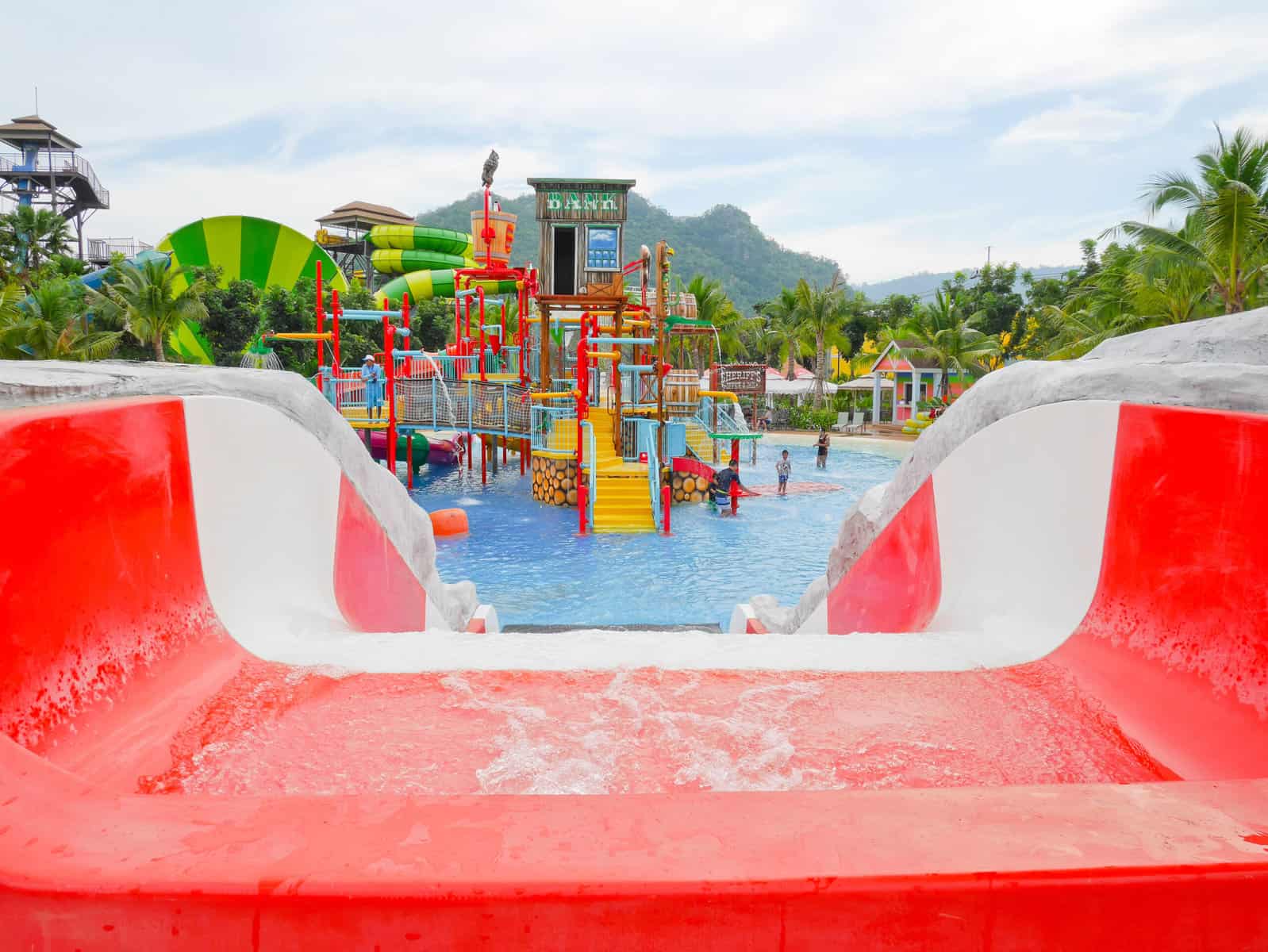
Water Splash Blog Read more, Discover more ! How to Secure Government Grants for Your Community’s Splash Park or Playground Are you dreaming of a
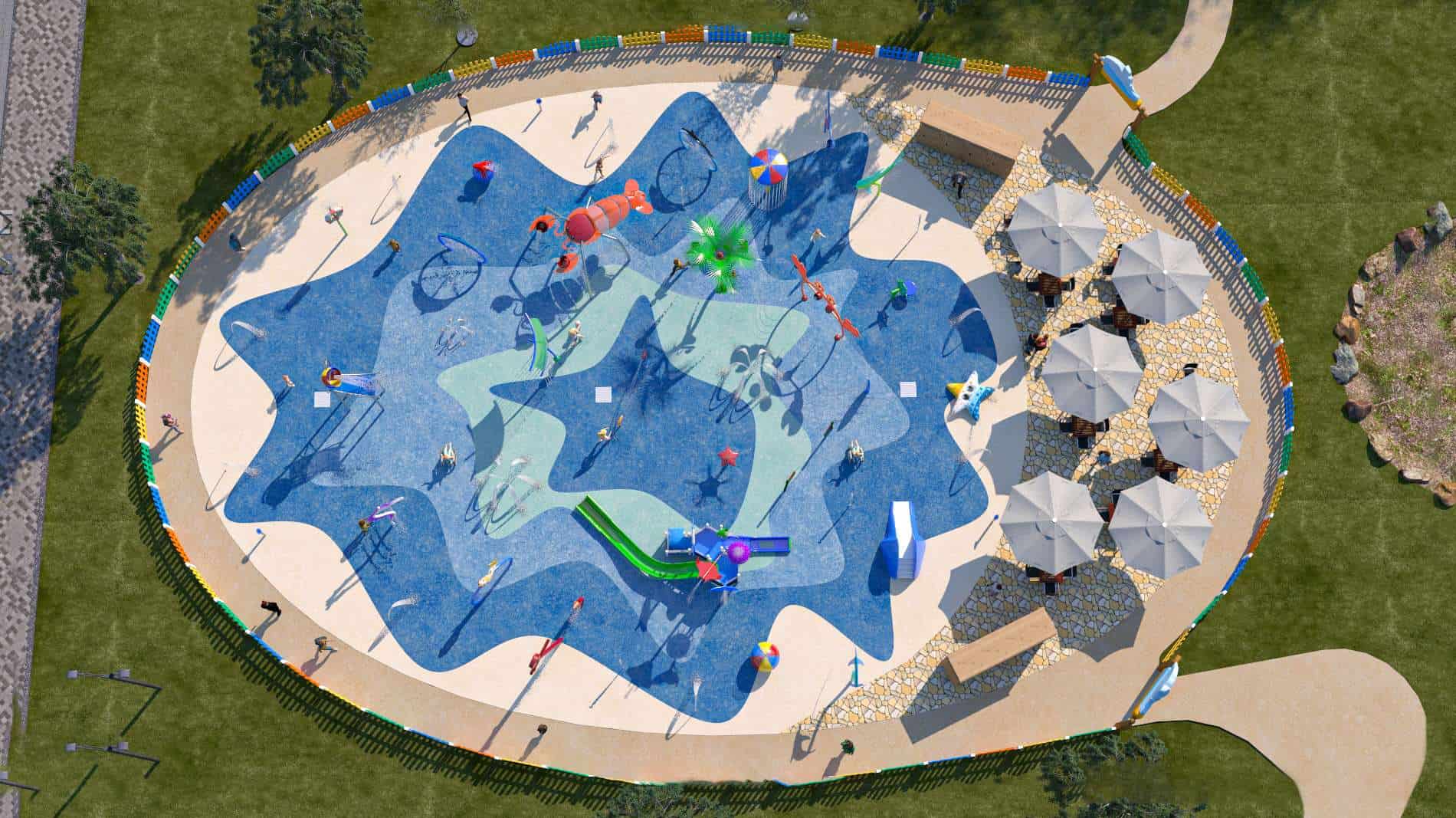
Water Splash Blog Read more, Discover more ! How To Build A Splash Pad in 4 Step? Read more
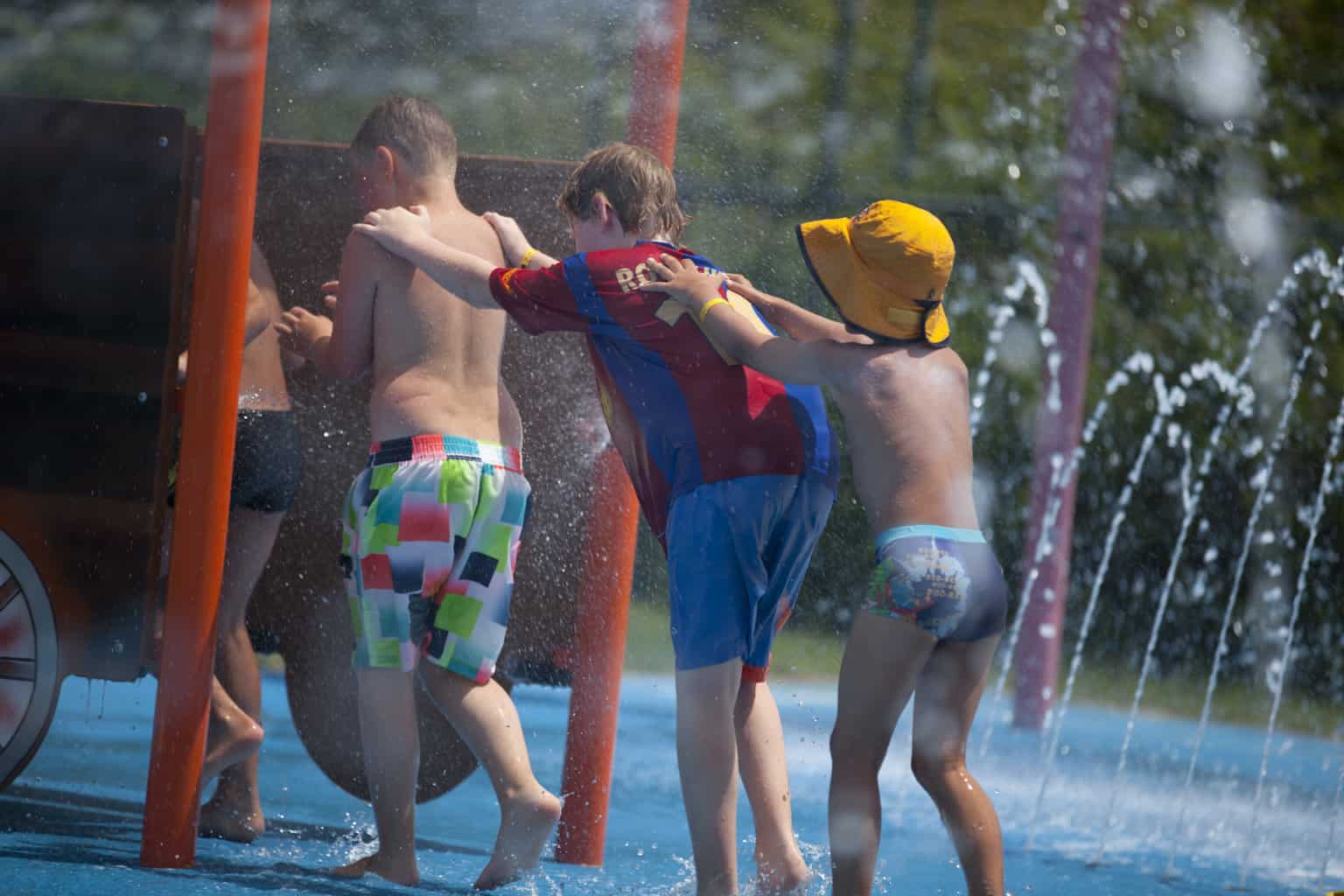
Water Splash Blog Read more, Discover more ! How to create a water park at home? In this article, we will answer the question of
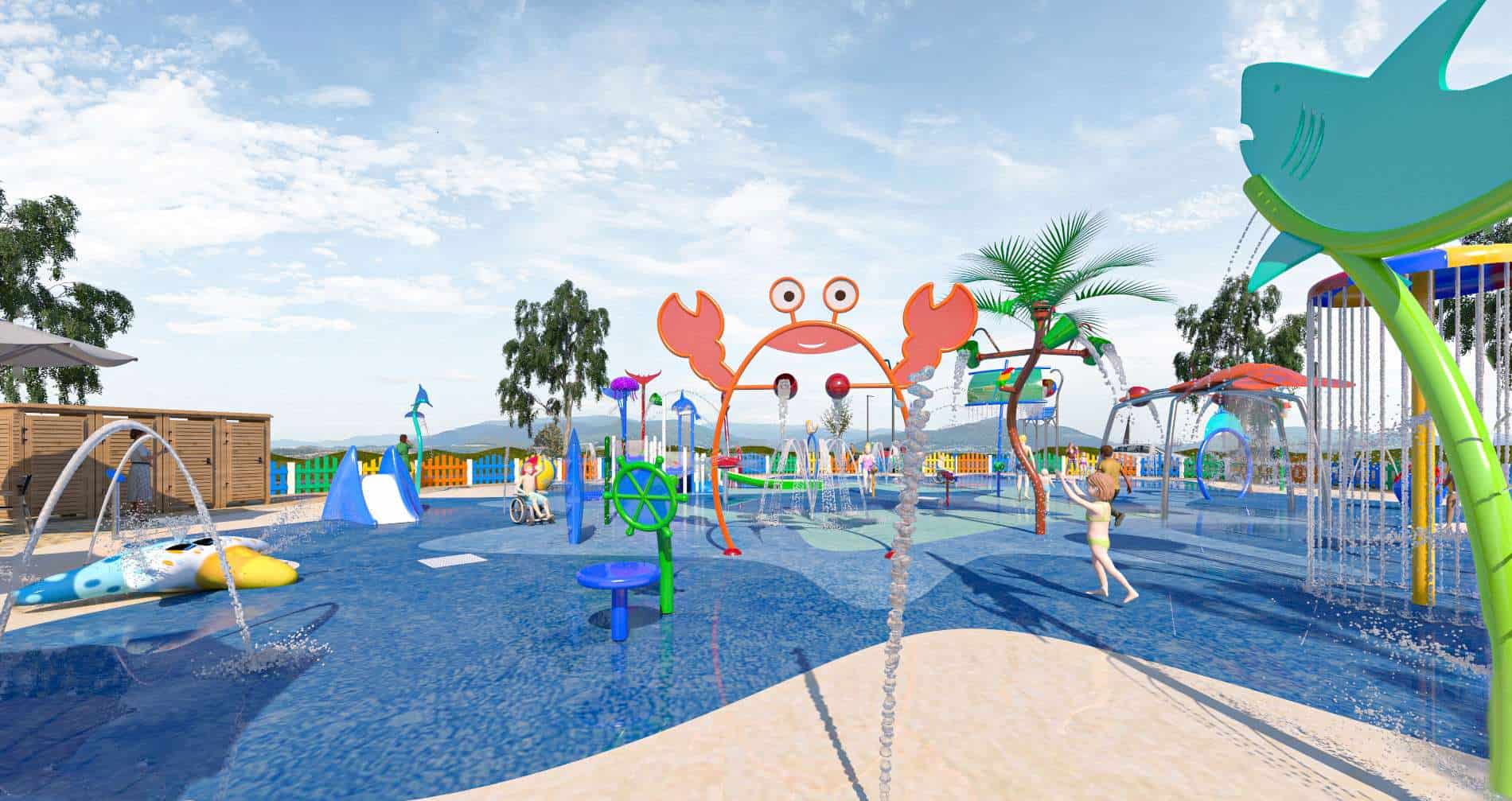
Water Splash Blog Read more, Discover more ! How To Design A Splash Pad With Regulatory Compliance? In this article, we will answer, How to
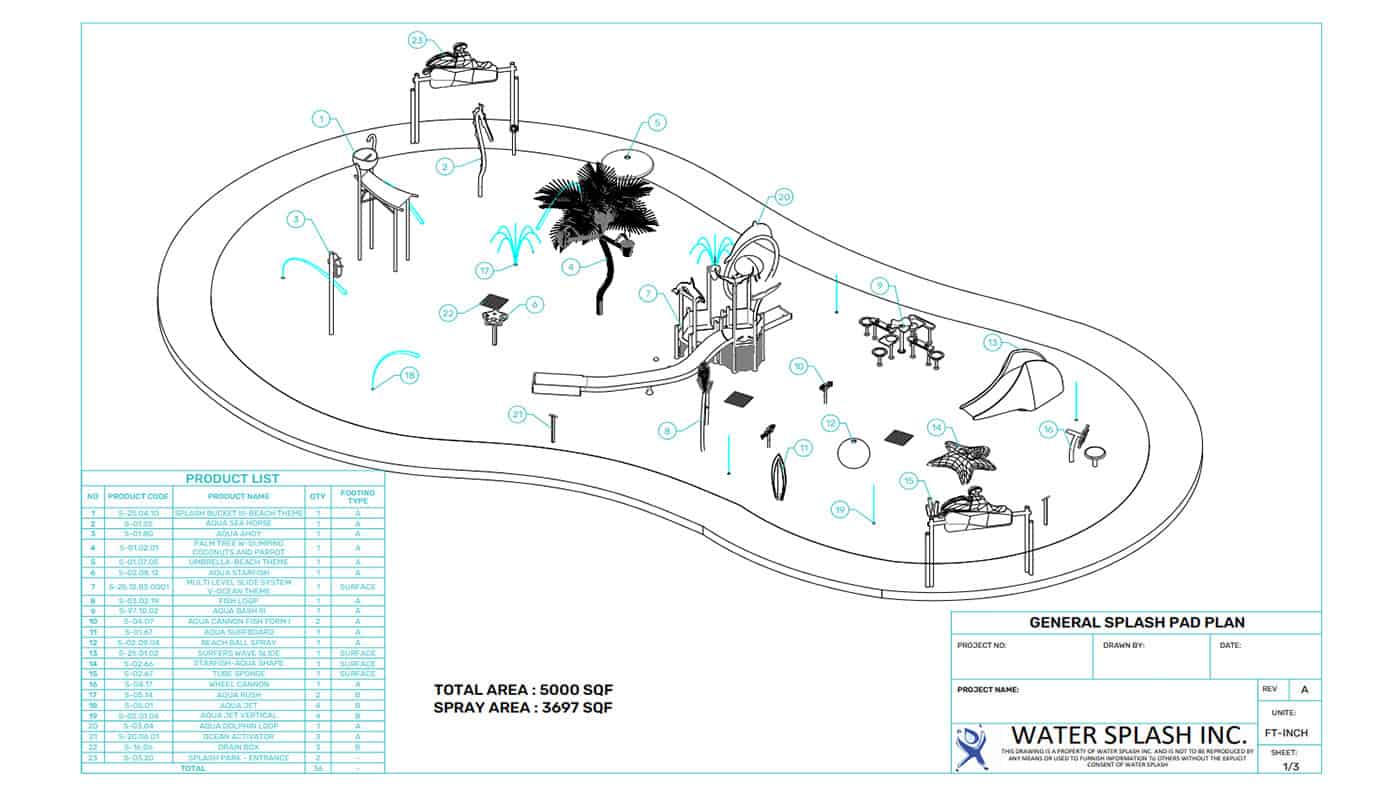
Water Splash Blog Read more, Discover more ! WATER SPLASH DESIGN PERSPECTIVE Water Splash, Inc. For more than 20 years, Innovative Water Playground Equipment designs,
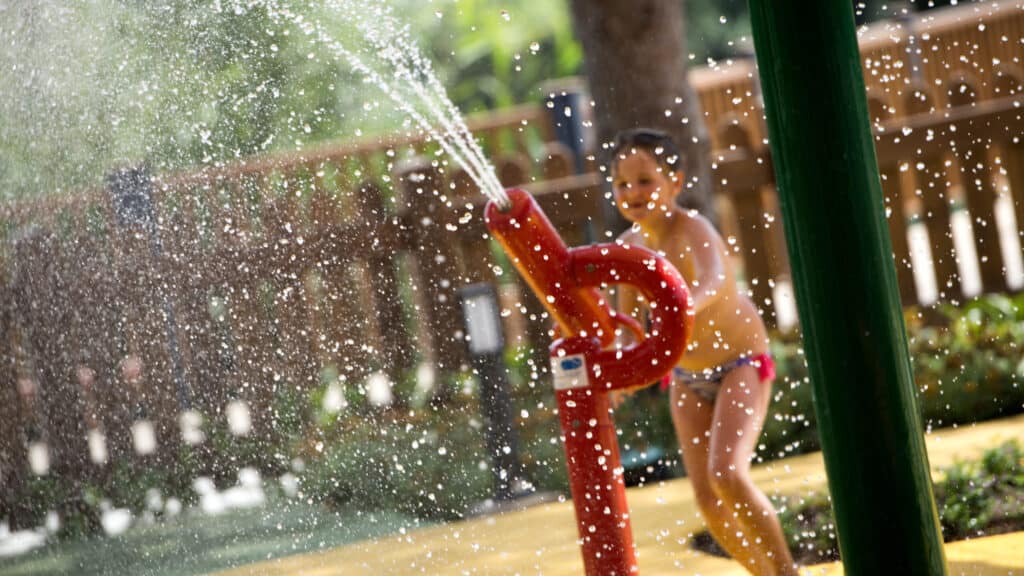
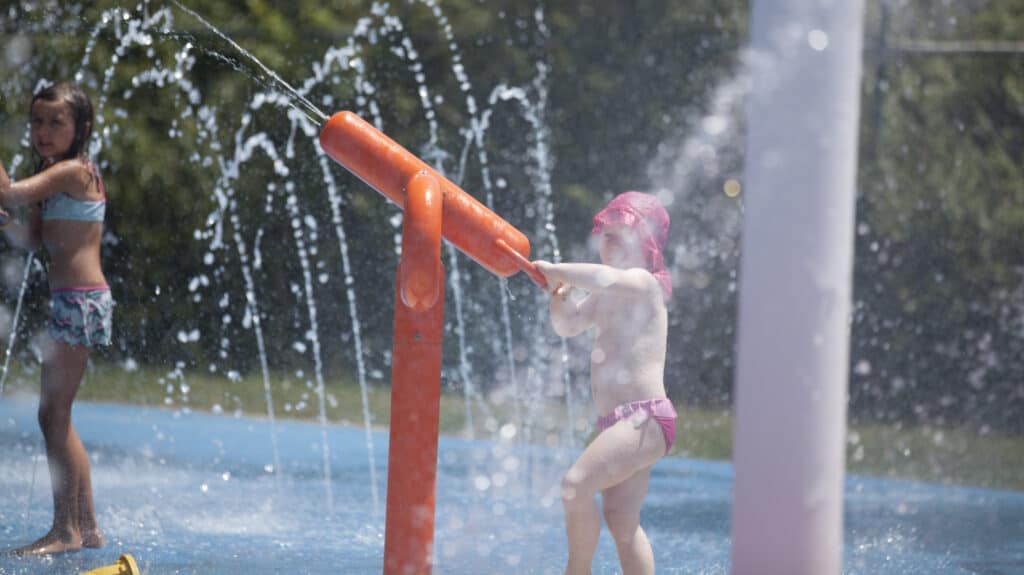
(800) 936 3430
102 W Service Rd Ste 412, Champlain, NY, 12919, United States
© 2022 Water Splash Inc. All Rights Reserved